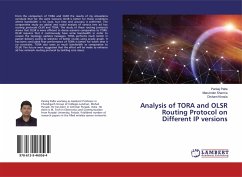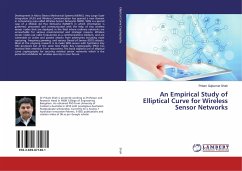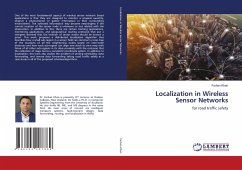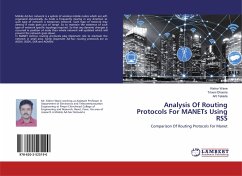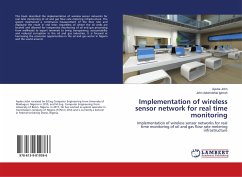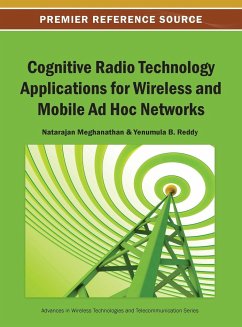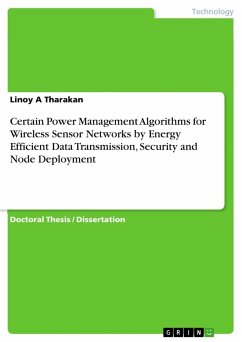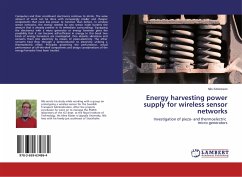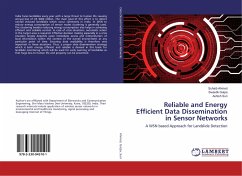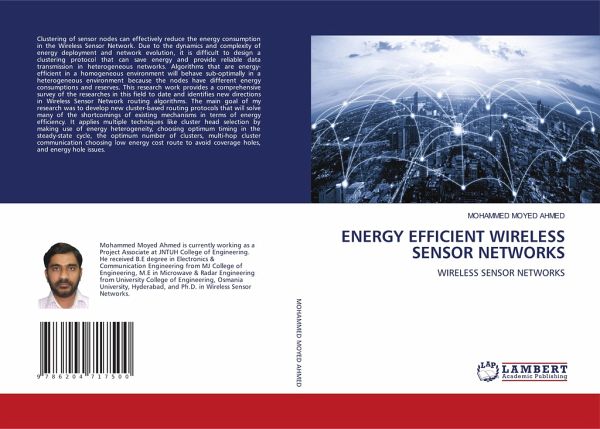
ENERGY EFFICIENT WIRELESS SENSOR NETWORKS
WIRELESS SENSOR NETWORKS
Versandkostenfrei!
Versandfertig in 6-10 Tagen
47,99 €
inkl. MwSt.

PAYBACK Punkte
24 °P sammeln!
Clustering of sensor nodes can effectively reduce the energy consumption in the Wireless Sensor Network. Due to the dynamics and complexity of energy deployment and network evolution, it is difficult to design a clustering protocol that can save energy and provide reliable data transmission in heterogeneous networks. Algorithms that are energy-efficient in a homogeneous environment will behave sub-optimally in a heterogeneous environment because the nodes have different energy consumptions and reserves. This research work provides a comprehensive survey of the researches in this field to date ...
Clustering of sensor nodes can effectively reduce the energy consumption in the Wireless Sensor Network. Due to the dynamics and complexity of energy deployment and network evolution, it is difficult to design a clustering protocol that can save energy and provide reliable data transmission in heterogeneous networks. Algorithms that are energy-efficient in a homogeneous environment will behave sub-optimally in a heterogeneous environment because the nodes have different energy consumptions and reserves. This research work provides a comprehensive survey of the researches in this field to date and identifies new directions in Wireless Sensor Network routing algorithms. The main goal of my research was to develop new cluster-based routing protocols that will solve many of the shortcomings of existing mechanisms in terms of energy efficiency. It applies multiple techniques like cluster head selection by making use of energy heterogeneity, choosing optimum timing in the steady-state cycle, the optimum number of clusters, multi-hop cluster communication choosing low energy cost route to avoid coverage holes, and energy hole issues.




